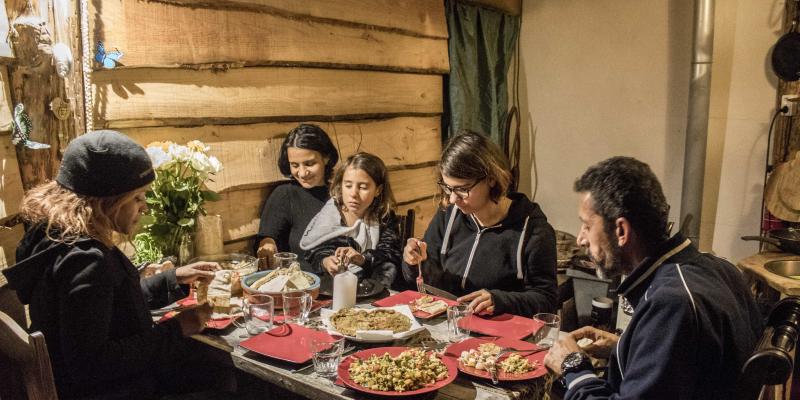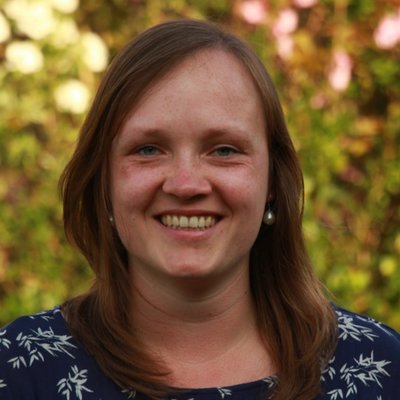Feeding the melting pot: Inclusive sustainable diets in the multi-ethnic city
Guest author: Anke Brons (Aeres University of Applied Sciences, Almere and Wageningen University)
Note: This post was initially published on the blog of the The Food Climate Research Network (FCRN) on 27 November 2018.

In achieving the transition to more healthy and sustainable diets, a major challenge is how to do so in an inclusive and equitable way. In a Western context, this issue is particularly relevant as cities increasingly become more diverse in their ethnic make-up; it is essential to include the entire population across class and ethnicity in this dietary transition. This means moving beyond the current involvement of the ‘green elite’ - mostly white, well-educated and high-income citizens with specific understandings and practices of sustainable food consumption.
Today, over half the world’s population lives in urban areas and cities’ food sourcing and consumption patterns have become the main influence on the sustainability of the food system. The challenge of providing healthy and sustainable diets to a growing population is increasingly one for cities to address. Providing inclusive access to healthy and sustainable food requires consideration of the diverse ethnic groups who make up modern cities, and who co-create the food environment with their own cultural food practices and with distinct culturally appropriate food patterns.
What could inclusiveness look like in providing sustainable diets to such a multicultural population? This question drives my current research, in which I study Syrian migrants in the Netherlands. My contention here is that identifying pathways to inclusive healthy and sustainable food systems involves looking beyond ‘classic’ sustainable food practices and interpretations (such as participation in alternative food networks like farmers markets or vegetable box schemes) and towards highlighting environmentally friendly practices among migrants that, while existing, are often performed ‘in disguise’ (Dubuisson‐Quellier & Gojard, 2016). It is necessary that we develop a more inclusive definition of what constitutes sustainable food practices in order to engage, recognise and include a broader range of people and their practices in the process of transitioning to a more sustainable food system. This move is essential to avoid exclusion of certain marginalised groups by either not crediting their sustainable practices or by failing to engage them by not speaking their language.
What is inclusiveness?
Much has been written about inequalities in food access from the perspective of ‘food justice’, a concept which is concerned with equity and power in relation to food security. The food justice approach focuses on how people of certain races and classes are structurally and historically disadvantaged in the food system. This approach largely focuses on the exclusion of poor ethnic minorities from access to alternative food networks such as local farmers markets. Such groups may be excluded because of economic inaccessibility or because the types of products on offer do not cater to their cultural food practices (Allen, 2010; Caraher & Dowler, 2014). In this context, inclusive access refers to a situation where everyone has the ability, expertise or skills to participate in the alternative agrifood movement. Others highlight different elements of inclusion, such as having access to an allotment garden to grow culturally appropriate foods (Diekmann, Gray, & Baker, 2018), having adequate transport to reach food outlets (Farber, Páez, Mercado, Roorda, & Morency, 2011), or being included in food policy processes by, for instance, getting a seat in a food policy council (Lombe & Sherraden, 2008).
Within these varied approaches to inclusion, a critical yet relatively underexplored element is the framing of the concept of sustainability itself. Guthman (2008) suggests that sustainability is culturally framed based on whitened cultural histories, by assuming that it is a universal ideal and performed in one particular way. What constitutes ‘good food’ is shaped by cultural capital, ‘repertoires’ or ‘understandings, thought habits, values, ideas and routines’ in which some ethical food practices are dominant and others marginalised (Johnston, Szabo, & Rodney, 2011, p.298). Johnston et al. mention the example of a single mother on low income, who cannot afford to participate in the dominant ethical practice of shopping at a farmers market but who never overconsumes or wastes food. These food practices that deviate from the prevalent ethical ideal may in fact be environmentally friendly, even though they are often not explicitly carried out with a concern for the environment. In other words, they are performed ‘in disguise’: that is, outside the collective normative standards of sustainability (Dubuisson‐Quellier & Gojard, 2016). In applying this observation to the case of Syrian migrants, I am interested in learning what migrants themselves understand as sustainability and also which elements of their food practices may – inconspicuously – already be sustainable. What follows is a brief summary of some aspects of my recent fieldwork experiences of conducting in-depth interviews and observations with Syrian migrants in the Netherlands.
Experiences from the field: Syrian migrants in the Netherlands
My research is concerned with perceptions of sustainability (and health), and in how people make sense of it in their daily lives and food practices. I have found that, for almost all the respondents, the concept of ‘sustainability’ or ‘environmental concern’ is unfamiliar, especially in relation to food. Upon asking a dietician from the region, I learned that even though there is an Arabic word for ‘sustainability’, it is not used or understood by most people. The concept of sustainability as such is therefore not widely recognised in Syrian (food) culture and may require (cultural) translation in the Dutch food context.
At the same time, although not recognised as such by those performing them, the food practices of respondents often scored well in some respects when compared with the Dutch dietary guidelines for sustainable eating (Voedingscentrum, 2018), in that fresh (unprocessed), seasonal and local food featured heavily in their diets. Many respondents were used to cooking with fresh and seasonal vegetables, as they did in Syria:
I: ‘So, you cook with the products from the season?’
R: ’Yes, but you see, the season in Holland does not exist. Here you find everything, there is no season.’
I: ‘Then, why do you cook with the product from the season?’
R: ‘It never hurt me eating cherries in the winter, but there is a cycle and you should listen to it. I do not think it is harmful, but I feel like I have to follow the cycle of the four seasons, and each season gives you something.’ (Long-term resident, 26 years in the Netherlands)
Seasonality and unprocessed, fresh produce are, however, not at all associated with sustainability in the respondents’ minds.
Several people also mentioned buying food from the local farmer or slaughterhouse. In one Dutch city – Enschede – local Dutch farmers have even started producing Syrian cheese to accommodate the needs of their regular Syrian customers. Additionally, almost all the respondents indicated they had their own vegetable garden in the Netherlands, as in Syria, in which they grew at least grapes to make yaprak or dolma, a very popular Middle-Eastern dish. Yet they never associated these local food practices with being environmentally friendly, but rather as a means of obtaining the foods they wanted to eat.
On the other hand, respondents generally did not score so well on the aspects of the Dutch dietary guidelines which recommend low meat and dairy consumption. Most Syrians did eat meat quite regularly, even though they would themselves often explicitly label it as unhealthy. In terms of dairy, cheese and yoghurt were central and frequently consumed items in the Syrian kitchen. The exception to these food habits were regular religious fasting days carried out by some Syrian orthodox migrants, which involved not eating dairy or meat – essentially, maintaining a vegan diet – for two or three days a week.
Conclusion
My aim in highlighting these daily cultural food practices has been to show that sustainability can take diverse forms and that this diversity offers potential for multi-ethnic cities in transitioning to healthy and sustainable food systems in an inclusive manner. In order to identify shared pathways for this transition it is necessary to collaborate with the variety of ethnic groups living in cities to learn how they are experts at managing their daily food practices and how sustainability fits into their daily lives, albeit perhaps in disguise. For instance, I believe there is a pathway towards regionalisation of the food system that is at once inclusive and sustainable, which builds on the high degree of fresh vegetable consumption among local migrants and their habits of buying local, fresh food such as milk or cheese, as illustrated above. This indicates an interest in and a potential market for more local production of culturally appropriate and healthy foods in short supply chains which require little or no processing, which I see as both sustainable and inclusive. To quote Scott, Park, and Cocklin (2000), “[w]e highlight the need to examine the multitude of competing voices in a particular locality if sustainability is to be about anything other than maintaining the status quo and entrenching current patterns of inequality” (p.434). This involves looking beyond mainstream, ‘elite’ understandings of sustainable food practices and opening up the space for alternative interpretations and practices.
Do have a look at the blog of the Food Climate Research network for other posts related to food sustainability.
References
Allen, P. (2010). Realizing justice in local food systems. Cambridge Journal of Regions, Economy and Society, 3(2), 295-308.
Caraher, M., & Dowler, E. (2014). Food for poorer people: Conventional and 'alternative' transgressions? In Food Transgressions: Making Sense of Contemporary Food Politics (pp. 227-246).
Diekmann, L. O., Gray, L. C., & Baker, G. A. (2018). Growing ‘good food’: urban gardens, culturally acceptable produce and food security. Renewable Agriculture and Food Systems, 1-13. doi:10.1017/S1742170518000388
Dubuisson‐Quellier, S., & Gojard, S. (2016). Why are food practices not (more) environmentally friendly in France? The role of collective standards and symbolic boundaries in food practices. Environmental Policy and Governance, 26(2), 89-100.
Farber, S., Páez, A., Mercado, R. G., Roorda, M., & Morency, C. (2011). A time-use investigation of shopping participation in three Canadian cities: Is there evidence of social exclusion? Transportation, 38(1), 17-44. doi:10.1007/s11116-010-9282-0
Guthman, J. (2008). “If they only knew”: color blindness and universalism in California alternative food institutions. The professional geographer, 60(3), 387-397.
Johnston, J., Szabo, M., & Rodney, A. (2011). Good food, good people: Understanding the cultural repertoire of ethical eating. Journal of Consumer Culture, 11(3), 293-318.
Lombe, M., & Sherraden, M. (2008). Inclusion in the policy process: An agenda for participation of the marginalized. Journal of Policy Practice, 7(2-3), 199-213. doi:10.1080/15588740801938043
Scott, K., Park, J., & Cocklin, C. (2000). From `sustainable rural communities’ to `social sustainability': giving voice to diversity in Mangakahia Valley, New Zealand. Journal of rural studies, 16(4), 433-446. doi:https://doi.org/10.1016/S0743-0167(00)00018-8
Voedingscentrum. (2018). Duurzaam eten. Retrieved from https://www.voedingscentrum.nl/encyclopedie/duurzamereten.aspx

Anke Brons is a PhD Candidate in environmental sociology at Aeres University of Applied Sciences, Almere and Wageningen University. Her research focuses on inclusive healthy and sustainable food systems in a Western urban context. She holds an MSc degree in International Development Studies from Wageningen University. You can find her on Twitter @AnkeBrons.
When you subscribe to the blog, we will send you an e-mail when there are new updates on the site so you wouldn't miss them.


Comments